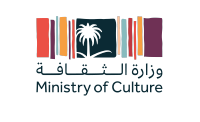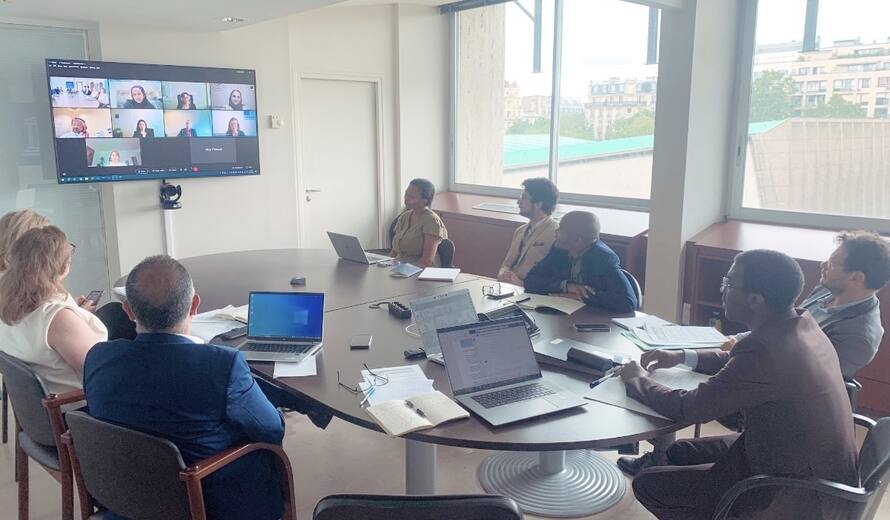UNESCO and the Kingdom of Saudi Arabia launch five projects to safeguard cultural heritage
On 5 July 2023, five new projects in the field of cultural heritage were launched during a kick-off coordination meeting between UNESCO and the Kingdom of Saudi Arabia. Over US$ 10 million will be provided across three years in the framework of the Fund-in-Trust Agreement signed in January 2020 between UNESCO and the Ministry of Culture of the Kingdom of Saudi Arabia.
“The major contribution arrives at a critical moment when cultural heritage around the world faces emerging challenges, but also opportunities owing to new technologies. We thank the Kingdom of Saudi Arabia for their trust in UNESCO’s mandate, as well as in culture as a driver of sustainable development,” said Ernesto Ottone R., UNESCO Assistant Director-General for Culture.
The projects reflect the vision of Priority Africa, UNESCO’s global strategy to foster peace and sustainable development across Africa through culture, education and sciences. In particular, socio-economic development of Africa through sustainable heritage ecosystem will be central to the series of activities, while the safeguarding of intangible cultural heritage across the continent is another key component.
The funding also allows UNESCO to respond to the needs expressed – and opportunities identified – by its Member States in heritage safeguarding, including capacity building for community-led sustainable tourism in Latin America and the Caribbean, awareness-raising on illicit trafficking using digital technologies, and showcasing of the diverse, sustainable foodways through an online platform. Synergies across six Culture Conventions of UNESCO, including , will be sought throughout the project in favor of a dynamic cultural ecosystem.
Projects
- Creating a sustainable heritage ecosystem for economic development in Africa
In the context of rapid urbanization, increasing risks of climate change and growing inequalities, it is important to fully leverage the potential of heritage to propel sustainable socio-economic transformation in Africa.
This project will harness innovative technologies and creative industries to protect and promote heritage through (i) capacity building in the nomination process, (ii) training of African experts in new technologies for conservation and management, and (iii) innovation in heritage and cultural and creative industries for socio-economic transformation. The project will be launched in the framework of UNESCO Priority Africa Flagship Programme 3 (Fostering cultural heritage and capacity development), and contributes to the 2030 Sustainable Development Goals (2030 Agenda) and African Union Agenda 2063: The Africa We Want.
- Strengthening capacities for periodic reporting under the 2003 Convention for the Safeguarding of the Intangible Cultural Heritage in Africa
State Parties to the UNESCO Convention for the Safeguarding of the Intangible Cultural Heritage are expected to submit a report on the measures taken for the safeguarding of the intangible cultural heritage. These reports serve not only as unique sources and accounts on the state of heritage protection and promotion throughout the years, but also as signifiers of challenges and opportunities.
This year, the 44 countries comprising African State Parties to the Convention are required to submit their reports making it the fourth region to undergo a revised periodic reporting system. These reports will contribute to the comprehensive Global Report on Cultural Policies to be published in 2025, requested by the Member States during the UNESCO World Conference on Cultural Policies and Sustainable Development – MONDIACULT.
This project will therefore build professional capacity among country focal points so they may facilitate and optimize the reporting processes; institutional capacities at national level will also be enhanced, thereby strengthen monitoring processes at multiple levels.
- Illicit Trafficking of cultural property
Illicit trafficking of cultural property deprives populations and countries of their history and culture, and undermines the rights of peoples and communities to their identity and heritage. Furthermore, these acts also fuel money laundering, tax evasion and the financing of terrorist activities. In recent years, illicit trafficking has increased due to the penetration of the Internet and social media, creating urgent needs to mobilize the international community in solidarity and action.
Responding to the needs to sensitize the public, this project will raise awareness on the consequences of illicit trafficking of cultural property online. This project will also support the recovery of stolen artefacts by developing a virtual database of stolen objects using 3D and augmented reality technologies.
- Strengthening capacities for resilient communities through sustainable tourism and heritage safeguarding in Latin America and the Caribbean
Tourism can be a strong contributing factor to the visibility of intangible cultural heritage practices. At the same time, if not effectively managed, it may threaten community-based practice.
With a strong focus on visitor management, the project will empower community members in Latin America and the Caribbean to harness tourism as a vehicle for safeguarding their living heritage, rather than an impediment to its transmission. The capacity-building component will respond to local needs and offer support to creating community livelihoods. Trainings will be provided to heritage management authorities, as well as the professionals on the ground who play a significant role in interpreting heritage and shaping visitor behaviour. Strategies will be developed to sensitize tourism stakeholders on the responsible marketing and promotion of cultural heritage.
This project also creates synergies between the World Heritage Convention and the Convention for the Safeguarding of the Intangible Cultural Heritage. ‘Cash for work’ programmes implemented in World Heritage sites will address conservation needs while upskilling local youth and the community.
- International Food Atlas and digital platform for safeguarding, promoting and transmitting foodways to future generations
Traditional practices associated with foodways, including sustainable farming, can contribute to tackling some of the major challenges identified in the 2030 Agenda, in particular Sustainable Development Goal 2 related to the fight against hunger and food security.
Today, sustainable agriculture often lacks visibility or is insufficiently considered in policymaking. This project aims to develop knowledge about foodways as living heritage and its contribution to sustainable development through digital tools.
Three specific outputs are:
- An online digital platform to showcase the diversity of foodways and its interlinkages with sustainable development
- Opportunities for stakeholders to engage in dialogue and learn about foodways as living heritage, through national and international gatherings, as well as peer-to-peer exchanges
- Research and study on the role of foodways for well-being and sustainable development of community
The five new projects supported by the Kingdom of Saudi Arabia builds on Dive into Heritage, an online platform dedicated to World Heritage sites in the Arab States, also funded by the Ministry of Culture of the Kingdom of Saudi Arabia.
